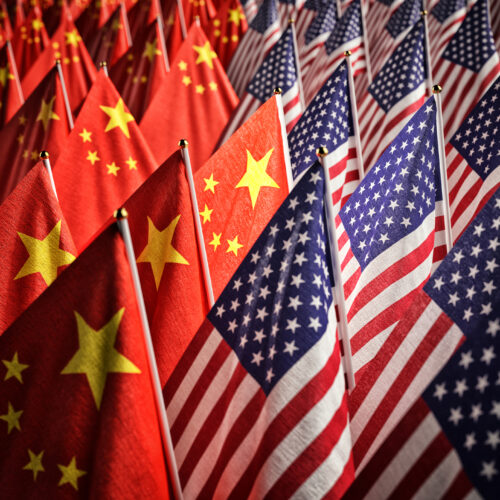Trump tells the European Union to make a 'large scale' purchase of US oil and gas or face tariffs

Andrew Harnik/Getty Images
- Donald Trump has said the EU will face tariffs unless they make up their trade deficit with the US.
- He has told the bloc to make a "large scale purchase" of US oil and gas to balance trade relations.
- In 2022, the US purchased $131.3 billion more of goods and services from the EU than vice-versa.
US President-elect Donald Trump said he has told the European Union it must purchase a large quantity of US oil and gas, or he will impose tariffs on the trading bloc.
"I told the European Union that they must make up their tremendous deficit with the United States by the large scale purchase of our oil and gas. Otherwise, it is TARIFFS all the way!!!" Trump posted on his Truth Social platform on Friday.
The EU and US have long maintained deep economic ties, but in recent years, the balance of trade has tilted in Europe's favor. In 2022, the overall US goods and services trade deficit with the EU was $131.3 billion.
While the US imports more goods in the trade partnership than the EU, the reverse is true for services.
In 2023, the US exported €396.4 billion ($411.5 billion) of services to the EU, while importing €292.4 billion ($303.5 billion) — a US surplus of €104 billion ($107 billion), according to EU figures.
"The EU and US have deeply integrated economies, with overall balanced trade and investment," Olof Gill, a European Commission spokesperson, told Business Insider.
"We are ready to discuss with President-elect Trump how we can further strengthen an already strong relationship, including by discussing our common interests in the energy sector," he added.
"The message is clear: the European Union is committed to continue working with the United States, pragmatically, to strengthen transatlantic ties," European Council President António Costa told reporters following a meeting of the European Council on Thursday.
Trump made tariffs central to his reelection campaign, suggesting a blanket 10% tariff on goods from all countries. It is still uncertain which policies he will introduce once in office.
The US is one of the EU's largest trading partners, particularly for industries like automobiles, pharmaceuticals, and luxury goods.
Individual countries like Germany, whose stuttering auto market depends heavily on imports to the US, would be particularly hard hit by renewed tariffs.
The pressure of potential tariffs comes as the eurozone struggles with sluggish economic growth and the ongoing war in Ukraine. The bloc expanded by 0.2% in the most recent quarter, compared to 0.7% growth in the US.
On Wednesday, Federal Reserve Chair Jerome Powell said Trump's proposed tariff plans pose more uncertainty to the US economy in the coming year.
"We don't know what will be tariffed, from what countries, for how long, in what size. We don't know whether there'll be retaliatory tariffs. We don't know what the transmission of any of that will be into consumer prices," Powell told reporters.
The European Commission did not reply immediately to a request for comment from Business Insider.

